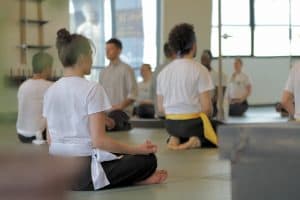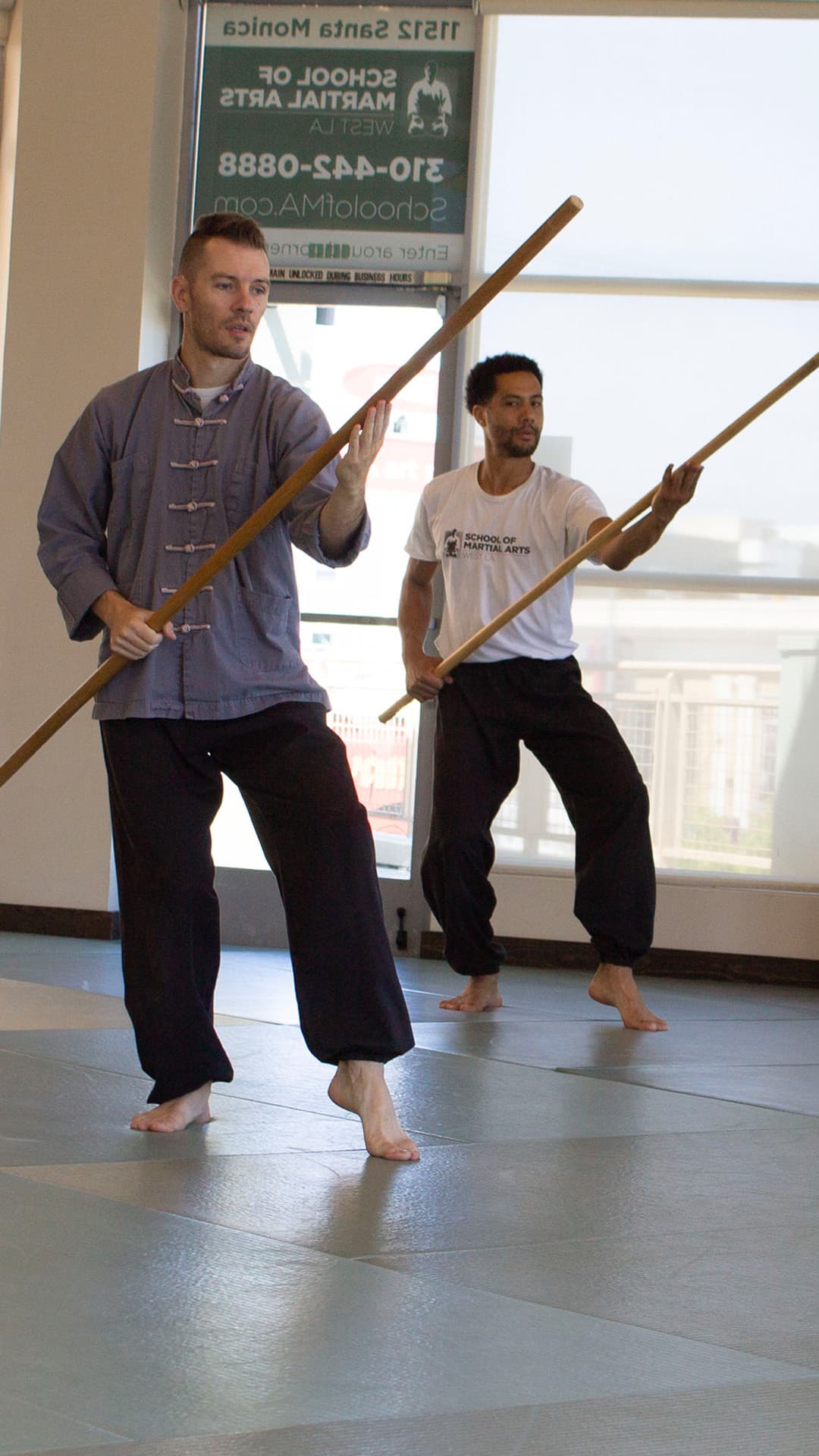 The first real goal I ever made was to meditate every day for a year. I did this when I was 17 and had just begun practicing martial arts with Sifu Brown. It was one of my New Year’s resolutions, and I kept it. In fact, I haven’t skipped a day since. It’s been 17 years.
The first real goal I ever made was to meditate every day for a year. I did this when I was 17 and had just begun practicing martial arts with Sifu Brown. It was one of my New Year’s resolutions, and I kept it. In fact, I haven’t skipped a day since. It’s been 17 years.
Some people might scoff at the idea of New Year’s resolutions. They may have tried in the past and failed to keep a resolution. Certainly, each of us know people who have struggled mightily with their decision to cut out sweets or watch less TV. Every regular gym goer sees a massive bump to the membership in January, only to see the herd lean back out by March.
Making goals a part of practice
My New Year’s resolutions have never really had that problem. Since I started making goals as part of my martial arts practice, I was always super serious about keeping them. I saw my resolutions as an opportunity to improve my self-discipline, and it became more or less a moral imperative for me to keep them. For example, I never had the chance to feel guilty for missing a day of meditation because I didn’t skip, but I surely would have.
When thinking about what my new years resolutions should be, I approach the process like anything in practice. I get very methodical. First, I look at the big picture and work on what is most important. The glaring areas begging for improvement get the most attention. Then I work on increasingly smaller areas, just like refining the detail of a technique or form. For example, I decided that mental and spiritual health was most important to me. (I thought, if most of what I do is to be happy, why not just work directly on being happy?) This is why my first New Year’s resolution was to meditate every day. After that, I thought about what was next most important, physical health. I made goals about how often I would practice martial arts, what I would eat, etc.
I found that thinking of goals as a part of my martial arts practice made it easy to stay all over them. Because I was in the dojo almost every day, I had a constant reminder of what was important to me. It also helped me take a methodical approach to setting and keeping my goals.
SMART goals
I first heard of this fairly well-known acronym from Sifu Brown. Most commonly, it refers to:
Specific (instead of I want to be stronger, think I will get better at pushups)
Measurable (instead of I will do lots of pushups, think I will be able to do 50 pushups without rest)
Achievable (look at how you will actually accomplish it, and make sure it’s possible, as in I will add one more pushup every week until I hit 50)
Reasonable (or Realistic, as in, Is this something I can actually see myself doing?)
Timely (set a time-line, as in I will be able to do 50 pushups by the end of 2018)
Most people are way too loose when coming up with goals and end up with something like, “This year I’ll eat better” or “In 2018 I’ll work out more”. This kind of wordage isn’t very helpful. A SMART fitness goal would look like this:
***Starting January 1st, I will do pushups every other day. I will begin with 20 without rest and add 1 pushup every week. By August 1st, I will be able to do 50 pushups without rest.***
Apply these ideas to your goals this year. Choose at least one thing to work on that’s fun, that empowers and excites you.



